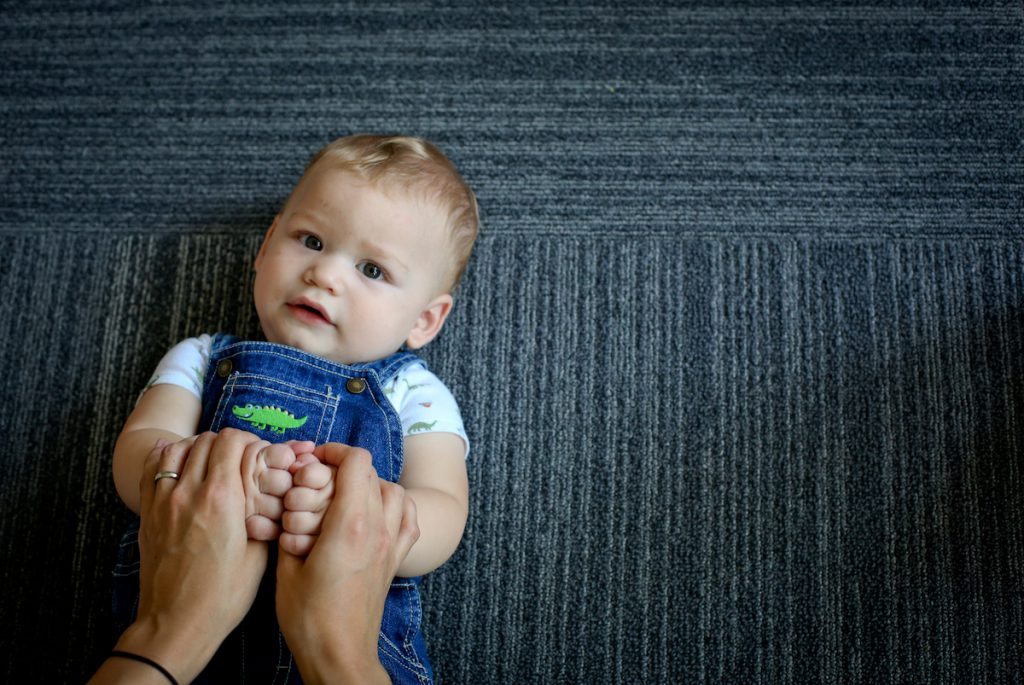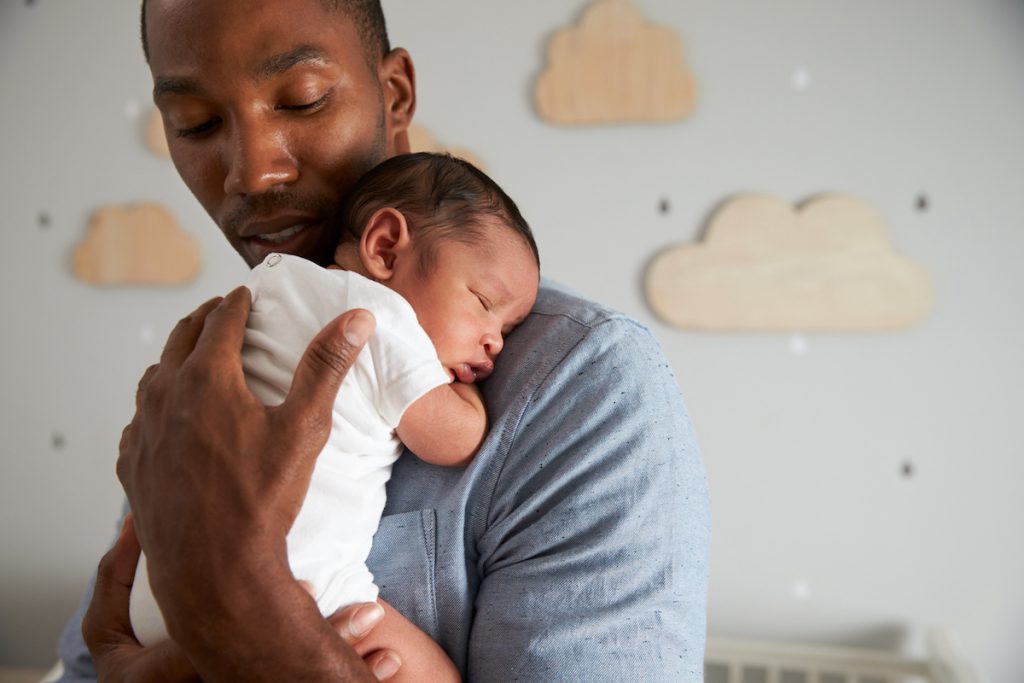
Why Music Is Better Than White Noise for Babies
Everyone loves to watch a sleeping infant, but is white noise for babies the best environment for these peaceful moments?
Research tells us no, and here’s why – your baby’s auditory system is hard at work, and sleep aids like white noise can send it into overdrive.
Our auditory system is the first to develop and the last to stop. It is almost fully developed at 16 weeks in utero. So, when your baby is born, they already have 5 months’ experience in processing sound.
Before we look at why soothing, patterned sounds like music are better than white noise for babies, it’s important to understand how the auditory system works.
We hear with our brains.
While auditory information comes in through our ears, our brains are the ones that interpret what we hear and make sense of the sound.
But processing sound doesn’t just use our ears, it’s a whole-body experience.
When sound travels in through the ears, it’s called air conduction. However, our whole skeletal system also resonates with sound, providing bone conduction.
It is through both channels (air and bone conduction) that we interpret our world.
The best example is listening to a recording of your voice.
Have you ever thought “Do I really sound like that?”
When we speak, we hear ourselves through both bone and air conduction. When listening to a recording, it is just through air conduction, and we usually don’t recognize it as our voice.
We have no earlids.
Unlike every other sensory system we have, our auditory system cannot turn off.
If we want to rest our visual system, we close our eyes. If our bodies get tired, we stop moving. But for our auditory system, we have no earlids – we can’t shut it off.
We can hear through walls, around corners, even while we are asleep. Mother nature does help us filter out sound that the brain deems unnecessary, but for babies, these filters are very immature.

Processing sound through our entire body, especially for infants, can be exhausting (the brain is constantly trying to make sense of auditory input).
However, if we understand how to manage it, our babies can still build neural pathways during sleep and get the rest they need.
The brain looks for patterns.
The brain is built to look for patterns. We live in a world where there is a lot of sound without patterns. Traffic, the hum of air conditioners, machines, computers, lights; these all make sound without any patterns for the brain to find.
Like many of these low tones, white noise is another pattern-less example of something that keeps baby’s brain busy while sleeping.
But patterns provide something for the brain to hold onto—a way to group information together in blocks, which is less taxing.
In the absence of patterns, the brain will work hard to find them, making our children more exhausted (even though they have been sleeping).
So, how do we find a way to tune out the “noise” of the world and help our little ones experience true rest? What’s better than white noise for babies?
4 Ways to Help Your Baby Rest with Music
Music is a combination of simultaneous complex patterns and a perfect solution for bringing calm to our brains.
It also fires all areas of the brain at once, so it can be used to create and strengthen neural pathways for our tiny tots, even during restful moments.
Here’s how…
Play music! But not just any music…you need thoughtful arrangements, like some softer classical tunes or lullabies, that will give your child’s brain what it needs while bringing calm to tired minds and bodies.
You can start with Kindermusik’s version of “Abiyoyo.” Stream it here or through our free app (available in the App Store or Google Play).
Be aware of your child’s sound environment. Don’t keep them in loud environments for long periods of time.
Establish a daily routine for music. Choose one song, lie down with your child, and just listen. Stroke their hair or rub their backs and allow the brain and auditory system to rest. This routine will help your child learn how to purposefully relax (a skill that will serve them well into adulthood!).

Attend an in-person or virtual Kindermusik class. Even if your baby falls asleep during class, they are still processing all that is going on through their bodies and their brains.
Over time, they will develop auditory skills to help the brain filter out unwanted sounds, and you will collect a library of music you will use forever.
Diana Cameron is a Kindermusik Accredited Educator, certified sound practitioner, and owner of Kids Discover in Toowoomba, Queensland, AUS. Get more of her professional insight into auditory processing and early music education at buildingbrainconnections.com.
Search for a Kindermusik class near you to learn more about how to use music to promote better rest for your little ones!

